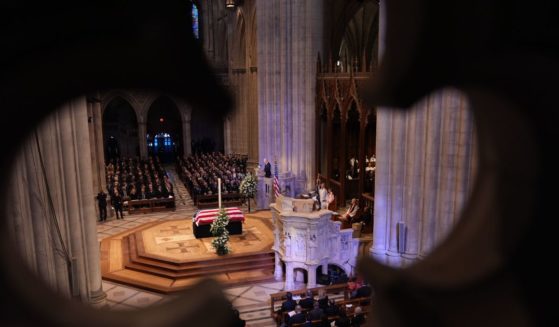
Leftist Constitution Gets Kneecapped by Voters 'Not Satisfied with the Constitutional Proposal'
Chileans resoundingly rejected a new constitution to replace a charter imposed by the dictatorship of Gen. Augusto Pinochet 41 years ago, dealing a stinging setback to President Gabriel Boric who argued the document would have ushered in a new progressive era.
With 99 percent of the votes counted in Sunday’s plebiscite, the rejection camp had 61.9 percent support compared to 38.1 percent for approval amid heavy turnout with long lines at polling states. Voting was mandatory.
The approval camp conceded defeat, with its spokesman Vlado Mirosevic saying: “We recognize this result and we listen with humility to what the Chilean people have expressed.”
Boric, who had lobbied hard for the new document, said the results made it evident the Chilean people “were not satisfied with the constitutional proposal that the convention presented to Chile.”
Most Chileans favor changing the dictatorship-era constitution, and Boric made it clear the process to amend it would not end with Sunday’s vote. He said it was necessary for leaders to “work with more determination, more dialogue, more respect” to reach a new proposed charter “that unites us as a country.”
The rejection was widely expected in this country of 19 million as months of pre-election polling showed that Chileans had grown wary of the proposed charter that was written by a constituent assembly in which a majority of delegates were not affiliated with a political party.
Carlos Salinas, a spokesman for the Citizens’ House for Rejection, said the majority of Chileans saw rejection as “a path of hope.”
“We want to tell the government of President Gabriel Boric… that ‘today you must be the president of all Chileans and together we must move forward,”’ he said.
Despite the broad expectations of defeat for the proposed new charter, no analyst or pollster had predicted such a large margin for the rejection camp, showing how Chileans were not ready to support a charter that would have been one of the most progressive in the world and would have fundamentally changed the South American country.
The proposed document was the first in the world to be written by a convention split equally between male and female delegates, but critics said it was too long, lacked clarity and went too far in some of its measures, which included characterizing Chile as a plurinational state, establishing autonomous Indigenous territories, and prioritizing the environment and gender parity.
“The constitution that was written now leans too far to one side and does not have the vision of all Chileans,” Roberto Briones, 41, said after voting in Chile’s capital of Santiago. “We all want a new constitution, but it needs to have a better structure.”
But others had fervently hoped it would pass.
Italo Hernández, 50, said he backed the changes as he exited the polling station in the National Stadium in Chile’s capital of Santiago. “We have to leave behind Pinochet’s constitution that only favored people with money.”
Hernández said it was “very symbolic and very emotional” to be voting at a stadium that had been used as a detention and torture site during the military dictatorship.
The result deals a major blow to Boric, who at 36 is Chile’s youngest-ever president. He had tied his fortunes so closely to the new document that analysts said it was likely some voters saw the plebiscite as a referendum on his government at a time when his approval ratings have been plunging since he took office in March.
What happens now amounts to a big question mark. Chilean political leaders of all stripes agree the constitution that dates from the country’s 1973-1990 dictatorship must change. The process that will be chosen to write up a new proposal still has to be determined and will likely be the subject of hard-fought negotiations between the country’s political leadership.
Boric has called on the heads of all political parties for a meeting tomorrow to determine the path forward.
The vote marked the climax of a three-year process that began when the country once seen as a paragon of stability in the region exploded in student-led street protests in 2019. The unrest was sparked by a hike in public transportation prices, but it quickly expanded into broader demands for greater equality and more social protections.
The following year, just under 80 percent of Chileans voted in favor of changing the country’s constitution. Then in 2021, they elected delegates to a constitutional convention.
The 388-article proposed charter, besides focusing on social issues and the environment, also introduced rights to free education, health care and housing. It would have established autonomous indigenous territories and recognized a parallel justice system in those areas, although lawmakers would decide how far-reaching that would be.
In contrast, the current constitution is a market-friendly document that favors the private sector over the state in aspects like education, pensions and health care. It also makes no reference to the country’s indigenous population, which makes up almost 13 percent of the population.
The Western Journal has reviewed this Associated Press story and may have altered it prior to publication to ensure that it meets our editorial standards.
Truth and Accuracy
We are committed to truth and accuracy in all of our journalism. Read our editorial standards.
Advertise with The Western Journal and reach millions of highly engaged readers, while supporting our work. Advertise Today.












